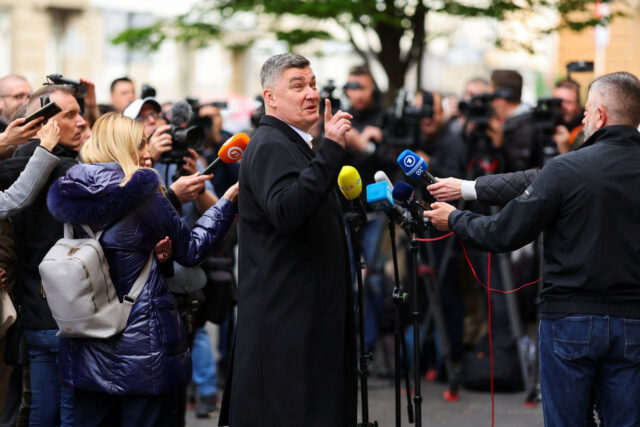Croatians lined up to cast their votes on Wednesday for a new parliament. The vote is expected to centre on growing public disaffection with allegations of corruption directed at the ruling Croatian Democratic Union (HDZ) and its prime minister Andrej Plenkovic. The HDZ has been a major player since the country’s independence from the former Yugoslavia in 1991. It has also played a key role in entering the European Union and adopting the Euro.
But corruption could be its achilles heel with the prime minister himself accused of appointing a state attorney linked to shady groups. Plenkovic says he’s clean and the vote will determine whether the public believes him or thinks he’s a liar.
Zagreb’s streets remained subdued on the national holiday as approximately 3.7 million voters were eligible to select from over 2,000 candidates. Initial exit polls were expected shortly after the polls closed at 7 p.m. (1700 GMT), with official results due in the subsequent days.
Recent surveys by IPSOS suggested that HDZ would secure 60 seats in the 151-seat parliament leading but insufficient for a majority, indicating probable coalition negotiations. Plenkovic’s main competitor, President Zoran Milanovic of the Social Democratic Party (SDP), expressed readiness to resign from his current role to lead the government should his party, in collaboration with other smaller parties, succeed in gaining power.
Milanovic emphasised the election’s significance as a decisive moment for Croatia’s future, criticising the possibility of extending Plenkovic’s governance for another four years. He also noted a potential shift in Croatia’s international posture, particularly its support for Ukraine against Russia, which he opposes.
The SDP, leading the ‘Rivers of Justice’ coalition, was projected to finish second with 41 seats. Meanwhile, other notable parties like the right-wing Homeland Movement and the green Mozemo party were expected to secure 15 and 11 seats, respectively. According to Teneo consultancy, a more fragmented parliament could lead to a diverse and potentially unstable coalition under the SDP, adding to the political unpredictability.
With Inputs From Reuters
















